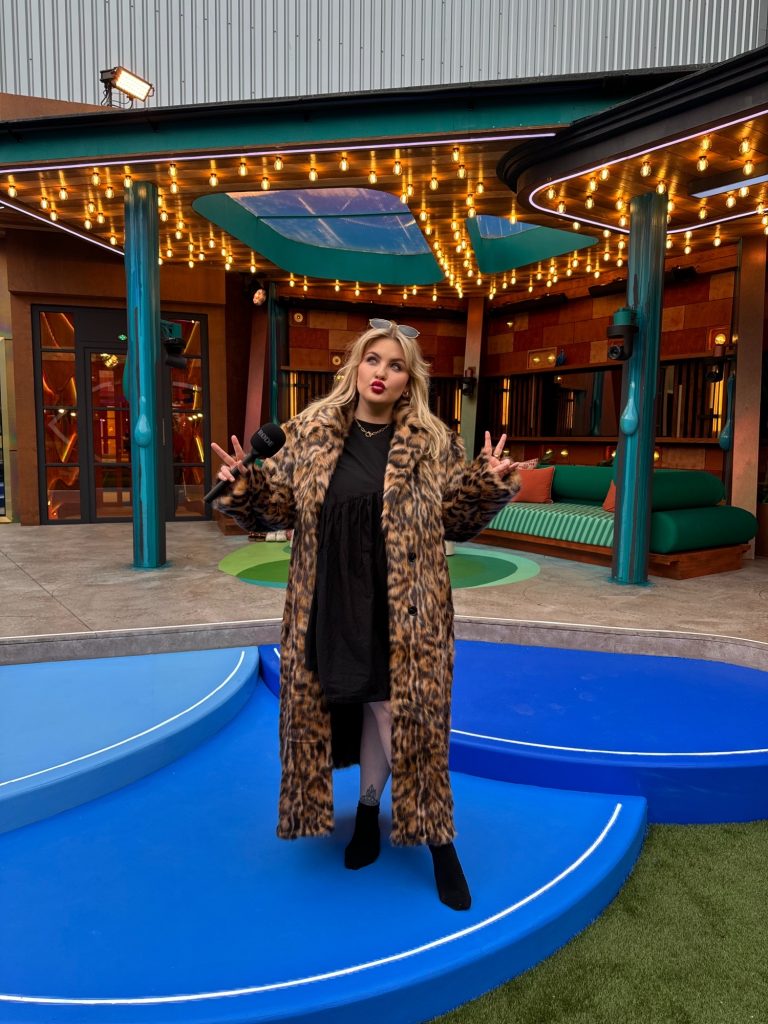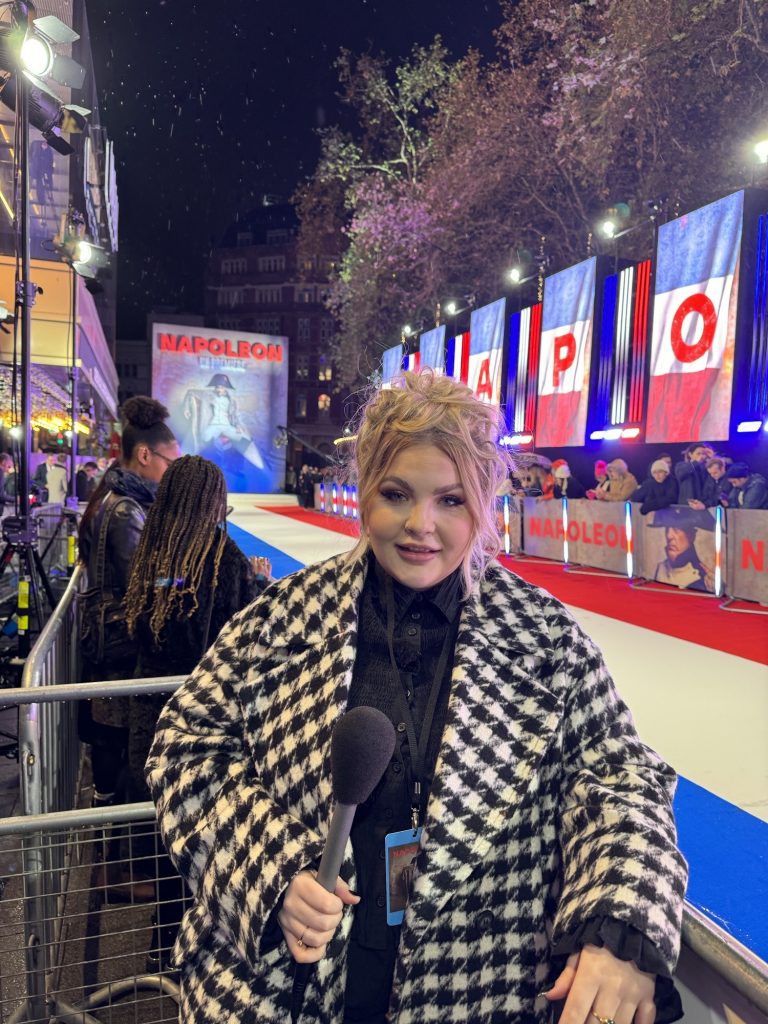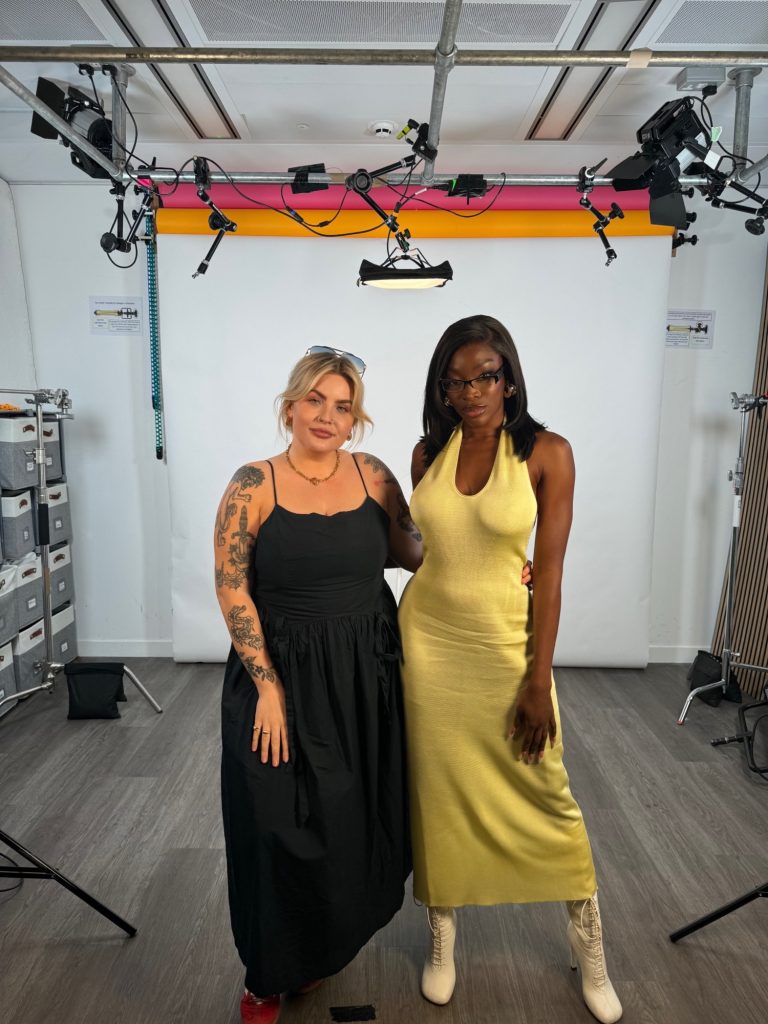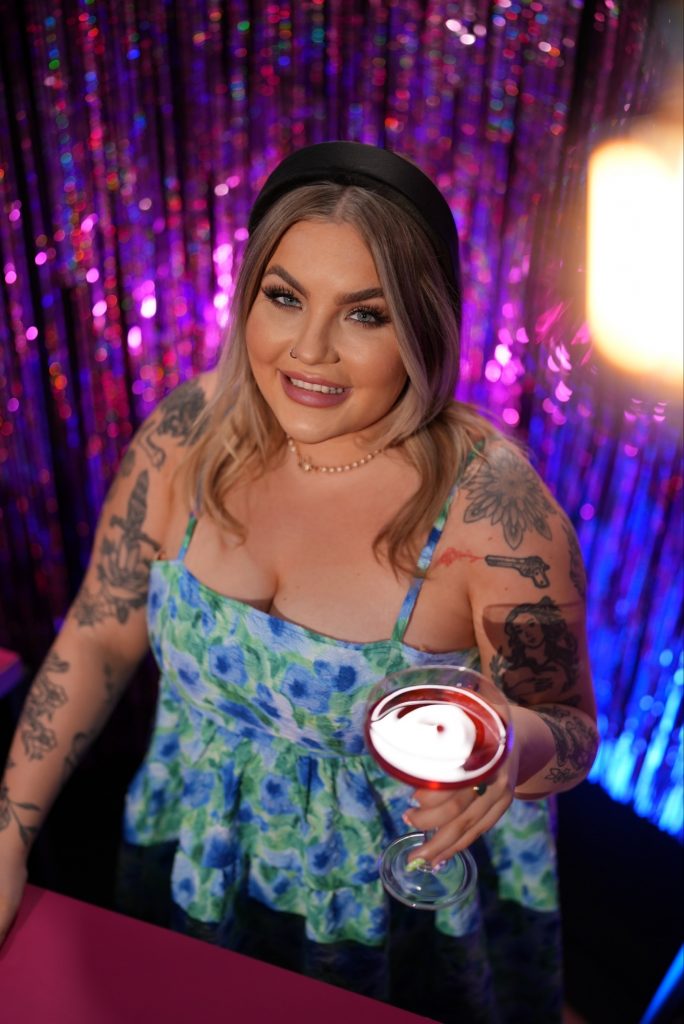Journey from Uni to Present Career
What initially inspired you to pursue a journalism career and were there any prominent figures that influenced your decision to want to go into media?
I’ve always enjoyed being a part of the media in some way. When I was a kid, I appeared on S4C, the Welsh-language TV channel, quite a lot, and it excited me so much. From a young age, I always loved being in front of the camera and being involved in the media industry in general—it’s something that’s always felt right for me. I wasn’t sure exactly what I’d do, which explains why my career has been so varied, but I knew I wanted to be part of it in some capacity.
In terms of prominent people I looked up to, I remember seeing Fearne Cotton on TV when I was younger and thinking, “I want to be just like her.” Alex Jones, who is a Welsh TV presenter, was another big inspiration.
How did your experience with Quench shape your career in media and journalism?
It wasn’t necessarily Quench itself that shaped my career since I only contributed occasionally, but student media in general was massive for me. I had a weekly radio show on Xpress Radio from freshers until the end of third year, which gave me so much confidence in presenting. I also worked with Gair Rhydd and I was the Editor of The Tab (though I’m sure you won’t mention that haha), which really helped me hone my writing skills.
The connections you make through student media are so important. You’re surrounded by people who are keen to go into the industry, and those early friendships can become really useful down the line.

What inspired you to create Welsh-language content, and why is it so important to you to uphold and promote the Welsh language?
Welsh is my first language, and I’m very, very proud to be a first-language Welsh speaker. It’s always been a part of my life—my family, my friends—everyone around me speaks it. So creating Welsh-language content wasn’t a conscious decision for me; it was just doing what felt natural and right.
It’s been so well-received, and it’s opened so many doors for me in my career. I’m lucky to have built a career in both English-language media in London and Welsh-language media at home, and I’ll never give up the latter. For me, it’s hugely important to keep the language thriving and to make cool, engaging content that appeals to young people.
The Welsh language can sometimes be seen as a dying language by people who don’t know much about it, which is absolutely not true. There’s a thriving Welsh-speaking community, and plenty of young people speak it. We just need more fun, exciting content to keep it alive and relevant for them, and I’m a huge advocate for that.
Your show Tisho Fforc? has achieved significant recognition. What does this success mean for Welsh-language youth programming?
It’s honestly been amazing to see how much Tisho Fforc? has grown since it started back in early 2022. It’s unlike anything S4C has done before, and the way it’s built a cult following has been so lovely to see. I often have young people come up to me at Welsh events or even just out and about in Wales, recognising me from the show, which is beyond what I ever expected.
It shows that there’s a real audience for this kind of fun, unique content for the youth of Wales. The success of the show proves that we need more programming like this—and that investing in youth content pays off.
Do you feel the Welsh language is adequately represented in media today? If not, what can be done to improve this?
Categorically, no. Living in London and working for English-language outlets, I see every single day how underrepresented the Welsh language is.
There aren’t enough Welsh-language speakers on big platforms. Media networks rarely give the Welsh language the attention or funding it deserves, and there’s a misconception that Welsh isn’t widely spoken. It’s not just about language, though—it’s about representation as a whole. Most of the Welsh people we see in media are from South Wales. North Wales barely gets a look-in.
We need to see more geographical diversity in hires and platforming people with different accents. For example, Sian Eleri, a BBC Radio 1 presenter, is from North Wales, and it’s incredible to hear her accent on such a big platform. But we need more people like her—diverse voices who can showcase what Wales, and the Welsh language, are really about.
Was there a particular moment or project that made you feel, “I’ve made it”?
There’ve been many of those moments because I keep raising the bar for myself. My first big celebrity interview, whether it was Michelle Keegan or Matthew Morrison (I can’t remember which!), felt huge. Interviewing them at the Heart Radio studio made me think, “Wow, I’m a legit journalist.”
Getting my first article published at Fabulous Magazine was another pinch-me moment, and working my first red carpet at the Pride of Britain Awards in 2021 was massive. The biggest one more recently has been getting my own dating show, Tisho Fforc?, on S4C. Seeing my face on the front of such a popular show in Wales felt like a dream come true.

Your advocacy for online safety is incredibly impactful, especially after such personal traumatic experiences. What changes have you seen in online safety laws since you began working with the NSPCC, and what more do you think needs to be done to protect children online?
The biggest change has been the passing of the Online Safety Act 2023. That’s something we worked on for years as part of the NSPCC campaign, and it’s been amazing to see it go from the early stages of being a draft to a bill, and then finally being passed into law.
I was lucky enough to witness it being passed in the House of Lords. Fewer than 10 people were invited to watch it happen, and I was one of them, which was such an honour. Seeing it all come to fruition was incredible, especially knowing I’d played a part in making it happen.
That said, there’s still so much work to be done. The law is a massive step forward, but the implementation will be key, and we need to keep holding platforms accountable to protect children online.
What advice would you give to others who want to use their platform to advocate for social issues?
Go for it. If you’ve got a platform, you might as well use it. And if you don’t have a platform yet, you can build one by speaking out about the issues that matter to you.
However, make sure you’re well-informed before you start. If you’re not prepared and backlash comes, it can be damaging—not just to your cause, but to your career. Also, think carefully about how much of your personal life you’re willing to share online. Once it’s out there, it’s permanent.
When I started speaking about online grooming, I had to decide whether I was comfortable with that being attached to my name forever. It’s a big decision, but if you’re passionate about the cause, it’s worth it. Anyone who wants to advocate for something important is already doing something great, so go for it—but be thoughtful.
Life Lessons and Future Aspirations

Looking back, what advice would you give to your university self and media students themselves who are starting out with Quench magazine?
Network and socialise with as many people as possible. Take every opportunity that comes your way because you never know where it might lead.
When I was at Cardiff, I never said no to anything—whether it was applying for awards, working on features, or meeting people from other universities. That’s what led to my first full-time job at Fabulous magazine.
I got that job before I graduated because of a contact I made through student media. That connection led to an internship, which then turned into a job offer. By the time my graduation ceremony came around, I was already working full-time as a journalist in London.
So, my advice is to throw yourself into every opportunity, build relationships, and take student media seriously. It can open so many doors.
How do you balance your many roles—from presenter and journalist to advocate and social manager?
Barely! Honestly, I rely on my ADHD medication to get me through a lot of it, but I also love doing a little bit of everything. If I’m not juggling multiple roles, I get bored, so for me, it’s second nature.
That said, I’ve had to learn to set boundaries, especially with working hours. I have a tendency to overwork and push myself to make everything perfect, but I’ve realised it’s important to clock off and protect my mental health.
If you could change one thing about the media industry, what would it be and why?
The fact that it’s all owned and controlled by rich, upper-class, white men. And around 95% (check this stat, its not accurate but I know it’s very very high!) of the industry is made up of privileged, middle-and upper-class people.
There’s a huge lack of diversity—not just in terms of race and class, but also geography. So many of the people working in the industry come from Southern England, with only a token Northerner or someone from Scotland or Wales here and there.
I’d love to see more diverse voices, especially from less privileged backgrounds. And on top of that, journalists need to be paid fairly. The pay in this industry is terrible unless you’re at the very top. Fair pay and proper representation would make the industry so much healthier.
Without fair pay we will never see much social mobility. The reason so much of the industry is middle-upper class is because they can afford to be paid a terrible salary, they have generational wealth and financial support from families. Those from lower income backgrounds like myself can’t always afford to live in London on a terrible salary. They shouldn’t have to live uncomfortably to follow their dreams.
What’s the best piece of advice you’ve ever received?
My mum told me, “If you’re not going to do something incredibly, don’t bother doing it at all.” She’s never worked in the media, but those words stuck with me. They’ve driven me to give 100% to everything I do and to always aim for the best.

Featured images by Mared Parry, no changes have been made.
This article is featured in our latest issue of Quench Magazine, all around the theme of CONNECTION! Be sure to check it out.


